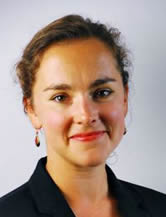
Professor Neil Gong’s new book Sons, Daughters, and Sidewalk Psychotics was published in March by the University of Chicago Press. In the book, Professor Gong explains why mental health treatment in Los Angeles rarely succeeds, for the rich, the poor, and everyone in between. His comparative approach reminds us that every “sidewalk psychotic” is also a beloved relative and that the kinds of policies we support likely depend on whether we see those with mental illness as a public social problem or as somebody’s kin.
Click here for more details:
https://press.uchicago.edu/ucp/books/book/chicago/S/bo212067953.html
You can also listen to a podcast about the book:
https://urldefense.com/v3/__https://player.fm/series/new-books-network-2472510/neil-gong-sons-daughters-and-sidewalk-psychotics-mental-illness-and-homelessness-in-los-angeles-u-chicago-press-2024__;!!Mih3wA!H9HNl9RaIg38Hl1hWwHKXgHyEyIHhZhFBN9isDQgrg2MVrr7shTe-xC32LYVEJcBnh8abU2ievFbod2dCdXr$






 Honoring exceptional achievement in scholarship, UCSD’s Academic Senate awarded John Evans the Distinguished Research in the Arts & Humanities and Social Sciences in June 2021. For more information on Professor Evans’s work at the intersection of science and religion, see
Honoring exceptional achievement in scholarship, UCSD’s Academic Senate awarded John Evans the Distinguished Research in the Arts & Humanities and Social Sciences in June 2021. For more information on Professor Evans’s work at the intersection of science and religion, see 